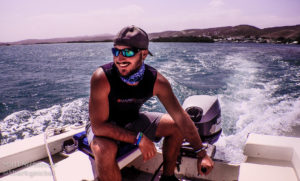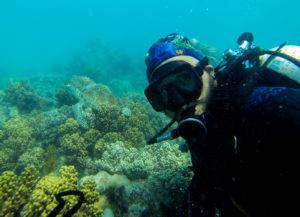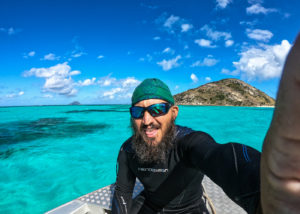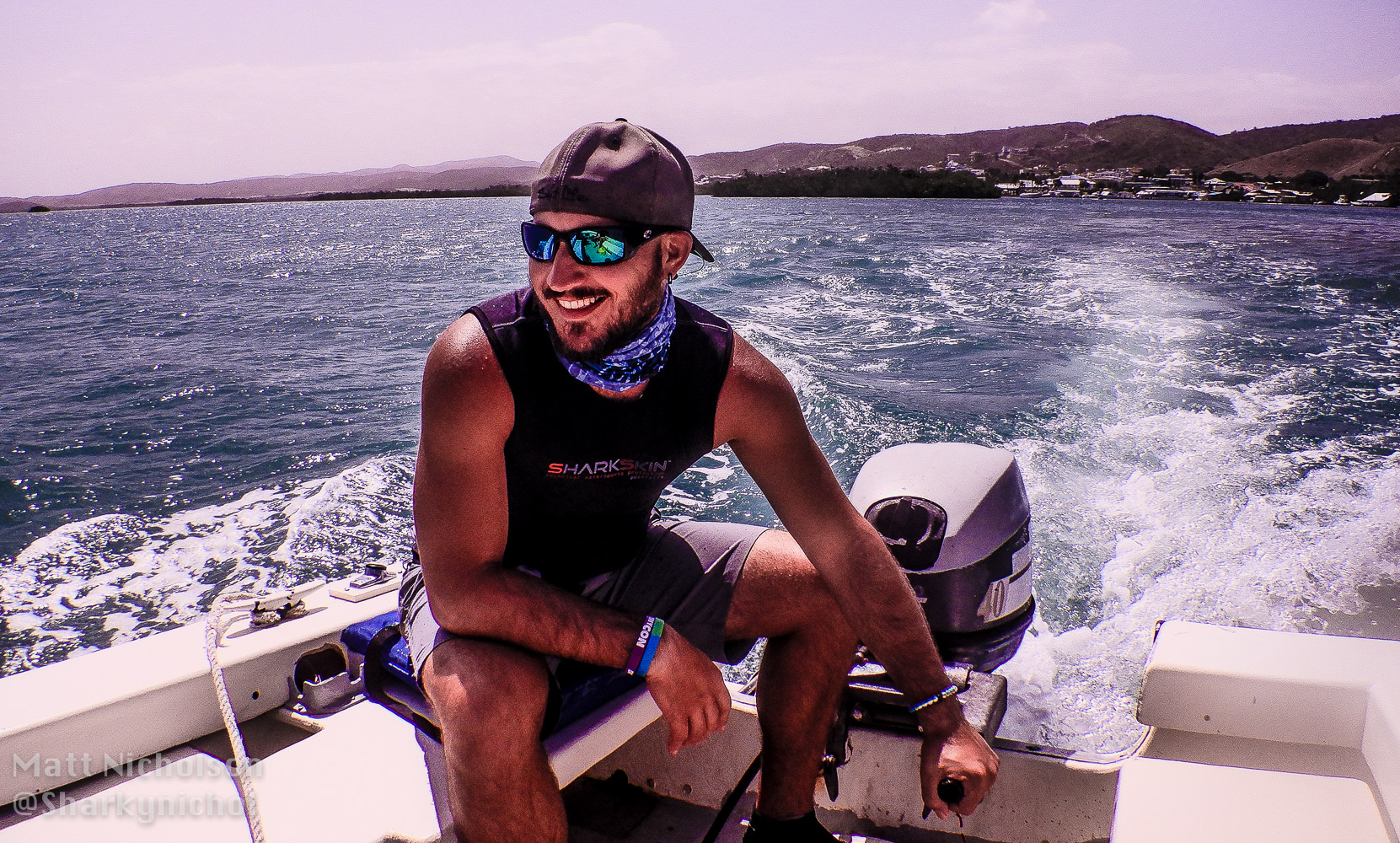Our world-leading marine research underpins a wide range of undergraduate and postgraduate programmes: Research-led teaching | Exeter Marine | University of Exeter. In this #MScGraduateInFocus series we are looking back on some of our MSc graduates who have excelled in marine conservation around the world since studying with us.
Today we meet Matt Nicholson, MSc Conservation and Biodiversity graduate (2014) and now completing his PhD at Arkansas State University!

Hi Matt! First off, why don’t you give us a bit of background about what made you choose to study your MSc with us at the University of Exeter Cornwall Campus?
I was having a really tough time finding a program to continue my academic adventure. I had never considered going overseas until I saw a post from Brendan [Godley] on the Coral-List where they were advertising their program. I emailed him and told him my situation and aspirations, he replied saying that I was exactly the kind of student they were looking for. The rest, as they say, is history. It was one of the best and most important decisions I have ever made in my life.
Once I opened myself to the option of studying overseas and realized that the University of Exeter was an option, the decision really made itself. The reputation of the program and the faculty make it a target destination. I consider myself extremely lucky to have had the opportunity to study there.
Coming from Florida, I was unsure how I would adapt to England. You always hear about the overcast days and rainy weather (which I came to refer to as a “constant mist”), but I absolutely loved life there. Cornwall is such a comfortable coastal area, with plenty to offer in the way of coastal walks, coffee shops and restaurants, and pubs. The campus also has a variety of locations to work or socialize. So, wherever you are, there is a place for you that will be exactly what you’re looking for.
It must have been quite a change coming from Florida to Cornwall! How did the MSc help prepare you for your next steps to undertake a PhD?
In the time since I graduated, I have always said I grew more as a person and scientist during my time at the University of Exeter than any other time in my life. It was my first time really feeling like a “researcher”. I was able to greatly develop my scientific writing in addition to learning how to build a schedule around research (incorporating things like data analysis and writing alongside other work responsibilities).
It may sound odd but the feeling of “being a researcher”, as in believing that I am actually something of a “scientist” or “researcher”, is something that was so important for my confidence in academia. That happened for me during my time at Exeter, being around my coursemates (who were all brilliant) and around professors who truly treat you like professionals let me feel like I was more than a student.

What are your highlights from studying at the University of Exeter?
The vibe all around the campus is so special. There was such a sense of community, which was really vital for me as an international student. I was always comfortable and happy on campus (and in Cornwall in general) which definitely made me more productive.
The lecturers from the CEC go beyond simply being stellar academics, they’re just good people. Everyone was very accessible, down to earth, and a delight to be around. You can’t ask for more than being surrounded by individuals like that.
Both the field course in Kenya and gannet sampling on Grassholm Island were incredible field experiences. However, my highlight was attending our post-Kenya get-together in Cornwall and debuting the video I put together about our trip. I went through hours and hours of footage from our trip, making sure that each and every person made it into the video. Seeing everyone react so positively and enjoy the video was a very special feeling for me and was probably my personal highlight.
I don’t know if any single factor is unique to the University of Exeter, rather it’s the combination of factors that really makes it a special place. You could certainly find institutions that have successful researchers, nice individuals, a good location, or wonderful facilities/resources. But, to string them all together in a single place is something that I find unique and special.
Finally, Do you have any advice for anyone thinking of applying to any of our programmes at the University of Exeter?
Do it, just do it.
Thanks Matt! You can follow Matt and his adventures on his Twitter account @SharkyNichol

If you want to find out more about any of our suite of #ExeterMarine Masters and Undergraduate courses use the links below!
- NEW: MSc in Marine Vertebrate Ecology and Conservation
- MSc in Conservation and Biodiversity
- MSc in Conservation Science and Policy
- MSc in Evolutionary and Behavioural Ecology
- MSc in Sustainable Development
- MSc in Environment and Human Health
- MSc in Renewable Energy Engineering
- BSc Marine Biology
- BSc Zoology
- BSc Environmental Science
- BSc Conservation Biology and Ecology
- BSc Evolutionary Biology
- BSc Animal Behaviour
- BEng Renewable Energy Engineering

